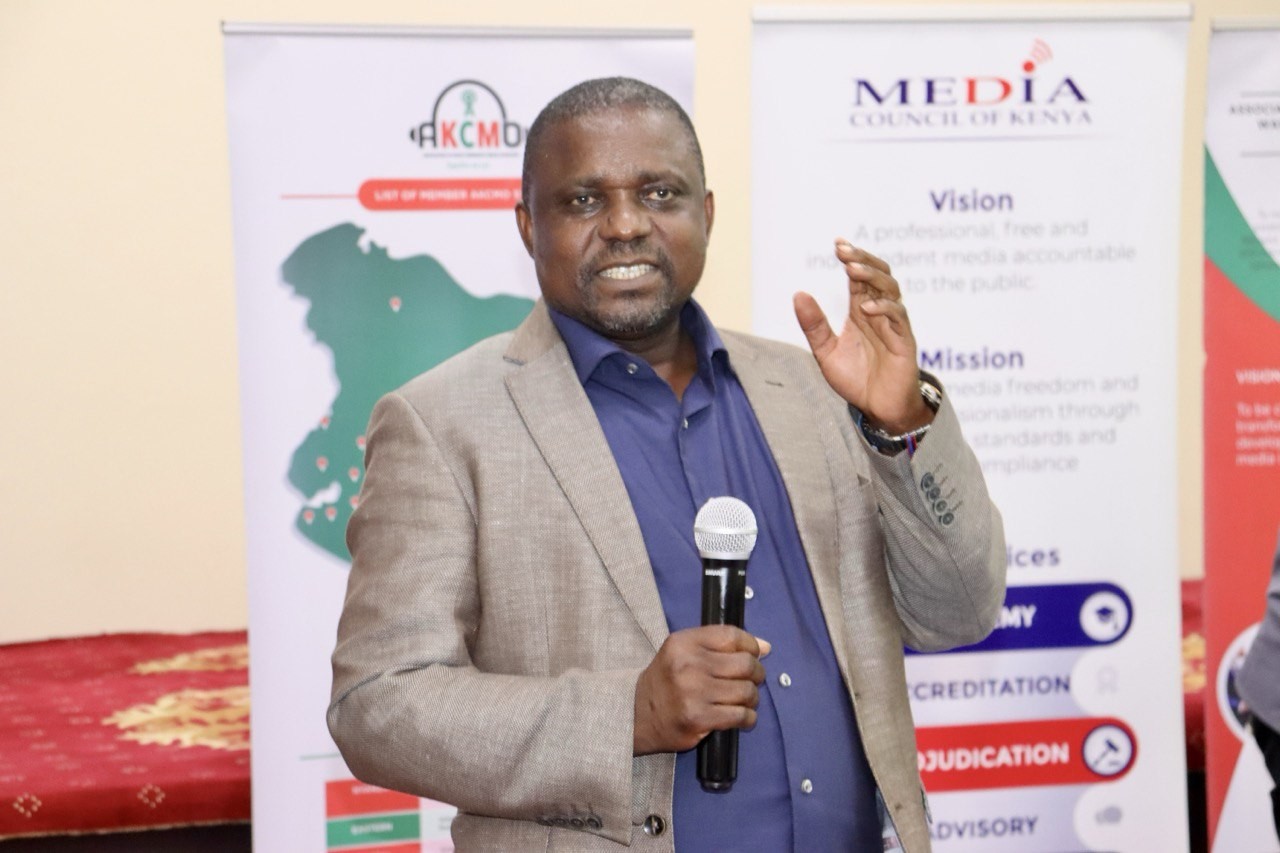
The Media Council of Kenya (MCK) is urging community media-based journalists to remain passionate in public interest reporting with a focus on issues affecting the local communities.
MCK Director says community-based journalists can produce public interest stories based on their locality, adding that journalists should take advantage of their locality for ideas on stories touching the local community.
“Community media journalists have the best access to local content. Be proud of what you do and don’t lower your ambition. Give in-depth content on issues around your local area touching on the lives of the community”, said Mr Bwire during a sensitisation forum on Public Interest Reporting for Community-based Journalists in Nairobi.
Mr Bwire also encouraged the journalists to practice solution-based journalism, saying that it gives hope to the community.
“People associate more with positive stories than negative news. Ensure that you practice solution-based journalism to give hope to the communities”, he added.
He emphasised journalists’ role in breaking down complex issues aimed at creating understanding while alluding to their agenda-setting role. He further called upon the journalists to host sources critical to their topics to shed more light on the issues under discussion.
MCK Assistant Director, Media Training and Curriculum Development Christine Nguku pointed out the importance of adherence to the journalism code of conduct, saying that it protects journalists from victimisation.
“When doing public interest stories, journalists should be guided by the Code of Conduct for the Practice of Journalism in Kenya which gives them the mandate on which they operate and protects them from external pressures”, she said.
She emphasised that any information received verbally should be verified before being shared with the public.
“A journalist needs to verify any information told verbally to avoid any issues that may arise from its use. Do not publish or air rumours, always make sure to have a source to quote in your story”, she said.
MCK Manager for Press Freedom, Safety and Advocacy Dinnah Ondari highlighted that the law protects journalists and should therefore not shy away from doing public interest stories.
“The place of public interest is integral in journalism, it has to do with accountability, transparency, and good governance. Therefore, the work of journalists is protected in the law under articles 33,34 and 35 of the Kenyan Constitution”, she said.
She informed them of their right to seek information from public offices and duty bearers, specifically those touching on public interest, adding that “seeking information using official channels when covering controversial issues can help journalists avoid challenges that may arise from it”.
Kevin Mabonga, Head of Communication at Katiba Institute urged journalists to acquaint themselves with the Access to Information (ATI) Act and familiarise themselves with its contents.
“It is your duty as a journalist to read the ATI Act. By doing so, you will be able to know what the law stipulates and what needs to be done in cases where you are denied information from a public office.”, noted Mr Mabonga
“ATI law is critical tool for investigative journalism as it supports journalist gain access to relevant information for in depth stories of public interest”, he added.